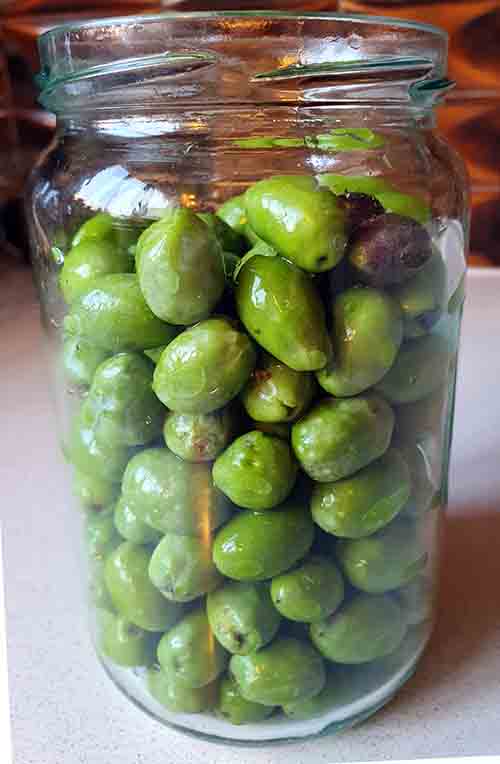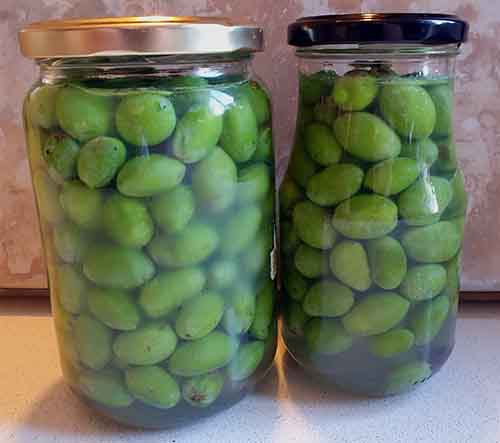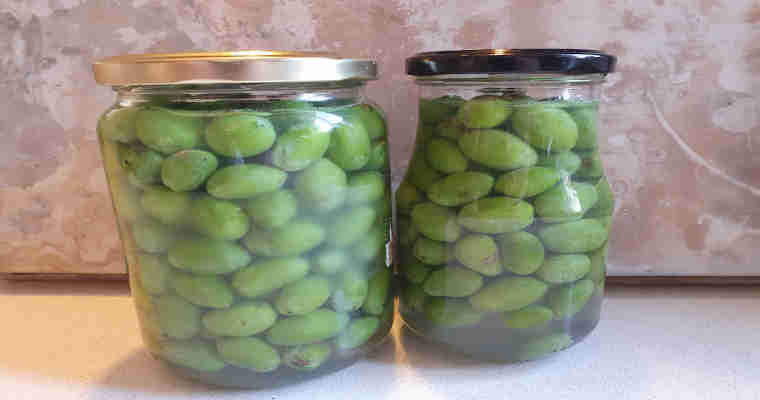Green olives, that are immature olives, can be pickled and fermented in water. The process of fermenting in water removes the bitter taste of the olives and transform the oleuropein and sugars, to form acids that aid in subsequent fermentation, and eventually to get that special taste we love of fermented olives. By using a brine of 10% to make pickled olives you cause the release of the fruit cell juices, forming a culture medium suitable for fermentation.
Fermented olives are a very popular fermented product. Their enhanced nutritional value due to the presence of phenolic compounds and monounsaturated fatty acids makes olives an important food commodity of the Mediterranean diet.

In addition, olives are packed with antioxidants, says Parthena Kotzekidou, Ph.D, professor at the Aristotle University of Thessaloniki in Greece.
For more about fermentation see Top 5 Food Fermentation Books.
When you finish fermenting green olives, you should have olives with a nice nutty flavor. I recommend fermenting olives for at least six months; I like going up to one year. The more time you ferment the olives, the less bitter and more intricate its flavor will become.

Choosing Green Olives
When buying green olives for fermenting or pickling, keep these in mind.
- Most olives are harvested by machine, but the highest-quality olives are picked, by hand.
- Olives ripen in the late summer and early fall. So that is the time of the year to go to the local farmers market and to get nice, firm and undamaged olives. Don’t use any mushy olives. You can find the best green olives in late September and October.
- Tiny dots on an olive are OK, but that telltale scar means there is a visitor call olive fly are lurking within your olive.
For tips about fermentation see 6 Tips for Successful Fermentation
Ingredients
- green olives
- water
- kosher salt or sea salt
Instructions
- Wash the olives underwater very well.
- Transfer the olives into a glass jar.
- Place the jar (with the olives) on the digital weight, and reset the weight.
- Add 10% kosher salt (10g of salt per 100g of water) to the jar.
- Leave 3-5cm of space between the lip of jar and brine. Place a weighting stone on the top of the olives.
- Close the jar tightly and set aside. In the first three days, a pressure of 2CO is created inside and it is recommended to open and release the pressure twice a day. set aside for at least six months; I like going up to one year.
This site is a participant in the Amazon Services LLC Associates Program and contains affiliate links to products. We may receive a commission for purchases made through these links.
